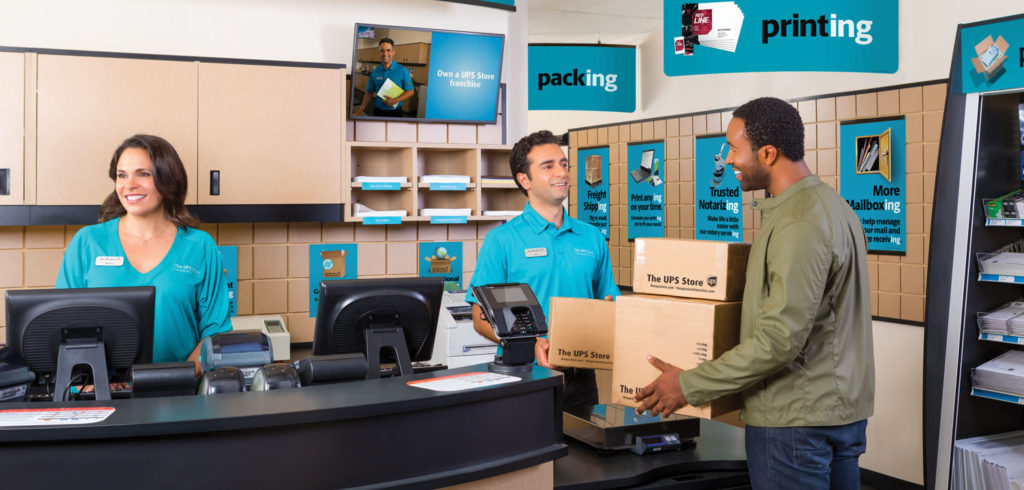During the recent Christmas peak, UPS offered incentives to customers to choose PUDO delivery over residential delivery. Marek Różycki, Last Mile Experts, and Ian Kerr, Postal Hub Podcast, analyze UPS’s B2C delivery strategy
During the recent Christmas peak, UPS offered rewards to US consumers to use out-of-home delivery (via its PUDO network) instead of residential delivery.
Shoppers could receive up to US$15 redeemable for a Target eGiftCard and up to six free months of UPS My Choice Premium (valued at US$20) – a service offering upgraded delivery options.
Rewards were offered for the first, third, fifth and 10th eligible package delivered to a UPS Access Point.
The UPS Access Point network has almost 15,000 locations across the USA. Deliveries to PUDOs like this are cheaper than residential delivery.
Keep it simple
To participate, consumers needed to be enrolled in UPS My Choice – UPS’s interactive delivery management (IDM) tool. Then customers needed to log in and select a UPS Access Point location as their preferred alternate delivery location. From UPS’s perspective this promotion would have helped drive more membership of its My Choice program.
One of the biggest challenges is to entice consignees to download, and for that matter actively use, yet another app. That’s why best-in-class systems usually have on option for interactive delivery management (IDM) via a simple link; this would also add simplicity.
Pricing incentive to use PUDOs
Longer term, carriers will introduce pricing incentives to encourage consumers to opt for PUDO collection over residential parcel delivery. In situations where free shipping is offered, delivery options will be presented to consumers in such a way to nudge them toward selecting PUDO delivery.
Why is UPS doing this?
The US legacy carriers really have no choice but to do this as they are simply unable to meet quality, capacity and cost targets with current ‘to door’ methodology. This is because:
- To door is more costly with an average parcels per shipment being around 1.2 to 1.3 for a typical e-commerce private consignee as opposed to between 10 and 50 for a typical PUDO (in this instance Access Point) or locker stop.
- Today’s customer wants choice and alternatives to a home delivery are desirable if they can’t be home… or don’t want the item to be delivered to their home.
- Out-of-home (PUDO and locker) delivery offers almost 100% first time delivery vs the low 90s in most markets (and even 60s-70s in some developing markets).
Accordingly, if they are to have any chance to deliver a reasonable customer experience, and to make money on this, out-of-home is critical.
Why hasn’t UPS done this earlier?
Modern e-commerce markets like the Nordics often have two thirds or more parcels being delivered out of home. This requires one other key tool to supplement an out-of-home network, and that tool is IDM.
Legacy carriers have big and unwieldly legacy IT systems which are not easy or cheap to upgrade. It is for this reason that smaller carriers can move faster.
The other is that some posts and the US carriers’ management just don’t have the mindset to make the move to being B2C-centric – in their heads, B2C is difficult and cannot be profitable. In fact, they should take a leaf out of InPost’s book. This independent carrier has now become a leader in the CEE (Central and Eastern Europe) last mile, shipping millions of parcels daily (at peak) and doing this profitably. In the words of its entrepreneurial CEO Rafał Brzoska:
“It is all a state of mind. At InPost we decided that B2C was the goal and have pursued a path of developing this service with the best possible customer experience. We are now growing well above the market and serving e-commerce B2C profitably.”
Conclusion
The US carriers are right to promote PUDOs and lockers, but without a change in mindset they will lag behind Amazon which, in just a few years, has become the trend-setter and catalyst for change in the US market.
 Ian Kerr is the founder and host of the Postal Hub Podcast, the weekly podcast for the postal and delivery sectors.
Ian Kerr is the founder and host of the Postal Hub Podcast, the weekly podcast for the postal and delivery sectors.

Marek Różycki is managing partner at Last Mile Experts, specializing in CEP and e-commerce last-mile advisory.


